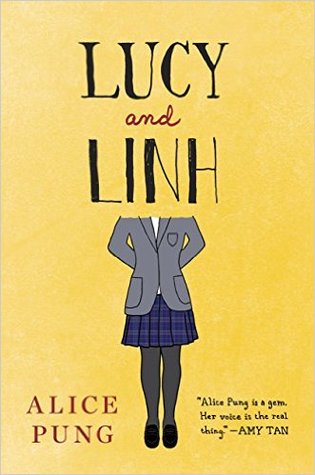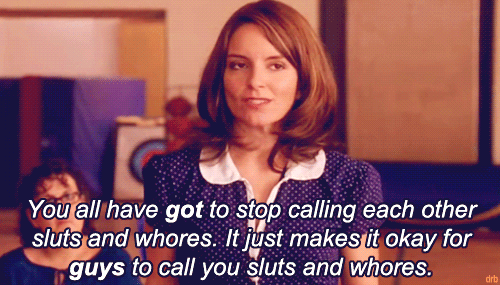 Laurinda is an exclusive school for girls. At its hidden centre of power is The Cabinet, a triangle of girls who wield power over their classmates – and some of their teachers.
Laurinda is an exclusive school for girls. At its hidden centre of power is The Cabinet, a triangle of girls who wield power over their classmates – and some of their teachers.
Entering this world of wealth and secrets is Lucy Lam, a scholarship girl with sharp eyes and a shaky sense of self. As she watches The Cabinet in action, and is courted by them – as she learns about power and repression – Lucy finds herself in a battle for her identity and integrity.
Few genres are more enthralling than the school story. In Laurinda, the acclaimed Alice Pung tells an involving, original story that captures the drama and pain of school life today, as well as revealing much about the choices of young women.
REVIEWLucy and Linh was marketed as a “literary Mean Girls meets Fresh Off the Boat” so naturally, I was excited. If you watched Mean Girls, you would probably know how this story would end but nonetheless it wasn’t about how the story end but rather how Lucy would get there. Lucy and Linh captures the life of a fifteen year old Chinese girl, who came from parents who immigrated from Vietnam to Australia as refuges, accepting her status, culture and most importantly herself. The story is beautifully written in the form of letters to her best friend, Linh.
(NOT RELEVANT TO THE REVIEW) I would also like to point out that the author comes from a similar background as Lucy which is pretty neat! Also fun fact, there’s another title of this book: Laurinda.
CONT
Lucy earns a full ride scholarship to the prestigious all girls school, Laurinda. What sets her apart from everyone at the school is her background. While all the parents of the students have fancy dancy jobs, Lucy’s dad has a job at a factory while Lucy’s mom (who speaks no english) sews in their garage. As the reader, we get to see how she maneuvers in Laurinda without losing her moral compass and letting the eminent Laurinda consume her.
And that’s all that is about. No romance! No drama about who she’s going to take to the dance, no any of that. Instead of Lucy focusing on boy relationships, she focuses on the relationship of her parents, teachers and peers.
And honesty, that was refreshing
It took me a while to connect with Lucy but I soon began to relate to her a lot despite our different cultural backgrounds. I also used to be the new girl and I also used to be the girl with no friends and so the administration had to tell the students to include me in their activities. I also found that Lucy was smart, even though a lot of characters in the novel thought otherwise. She has this knack to see through others and sometimes throws backhanded ridicule at them without them even knowing. I also appreciated how they story focused more on her identity. Where she fits in at Laurinda, what is considered to be the “Laurinda spirit,” how can she succeed if she didn’t believe in herself?
Lucy ‘s dry sense of humor is something I can’t help but commend, even though students at Laurinda can’t spot sarcasm.
“What part of China are you from?” Aaron asked me, in the way you would as a four-year old to hold a handful of fingers to show their age.
“I was born in Vietnam.”
“Hmm, how does that work?”
“Well, my mum went into labor and I popped out.”
“What?”
(NOT RELEVANT TO THE REVIEW) I get those “how does that work” questions when I tell people that my mom is German and that most of my family are Hispanic, Dominican and Filipino (then there’s just me, the one random ass black girl. Though next month, my sister is marrying a half Filipino and half black guy so now I won’t be the only black person at family gatherings). It’s like, wow, people have never heard of interracial marriages before. I don’t know why, but that quote flooded a lot of memories for me.
CONT
We now get to the nitty gritty. Pung introduces us to a trio called the “Cabinet” (Brodie, Amber and Chelsea) who supposedly runs the school (much like the Plastics in Mean Girls). They were used more as satire because I can’t imagine the things they did are quite realistic but I think the exaggeration was needed to drive the plot. These girls I guess you can say keep the school in order. They are the top dogs of the social order. Instead of being right in your face about it, it’s subtle which makes them even more “dangerous.” They’re the classic teachers pets while treating everyone like pets too. Lucy spends a lot of the time in story observing them but one day, they decided to put her under their wing. However, Lucy is smart and saw right through them, right then and there. She sees she’s use as a pawn just to prove how diversity the school is and how popular girls come in an assortment of colors. “Oh we’re so diverse!”
Speaking of diversity, the novel also tackled the issues on race, class and privileged, all oh-so relevant today. There were racists remarks curtsy of the Cabinet (“curry cruncher?”) and Lucy coming to terms of other privileged and even her own (despite her having significantly less than the people at her school). Before she got accepted to her new school, Lucy accepted where she came from because she went to a school where everyone had similar backgrounds. In Laurinda, Lucy was sort of taken back on how different everyone was compared to her. She started to question her own culture, becoming insecure.
One instance that I could remember at the top of my head was when Lucy’s dad brought home McDonalds to celebrate a movie that was going to be on TV about the war. He wanted to have Lucy bring her “friends” over but she told him he didn’t invite them (because she was too embarrassed about her house). She then thought how the Cabinet would think if they came over to eat McDonalds with them since it would probably be foreign to them. She thought the Cabinet would be disgusted with the McDonalds (rich or not, McDonalds fries will always be life, though I recently found out they use Beef-flavoring, not vegetarian or vegan friendly *sighs*).
I have to applaud Pung for making the this story work. When you hear the synapses, some might stray away cause it may seem childish but her writing and character development really demolishes those worries.
Although it may seem unappealing to most people since many (including me) are tired of the petty mean girl trope, it was actually engrossing. The Cabinet were kind of morally grey characters because at one point you like them, but then at another you despised them, especially with some of the pranks they pulled on others. They are actually generally nice but once someone started rise above the status quo, they make sure they stayed down. But what sets them apart from Regina’s clique is how involve their parents are (story wise). Amber’s mom shows great interest in Lucy because of her culture and the other moms pretend they know about all about Lucy’s ethnicity by adverting to stereotypes. The parents are highly involve in their lives socially and academically and so they are quite active in the plot.
The only negative thing that kinda ticked me off throughout the novel was the main character judging every SINGLE PERSON in the book. She judges her parents, her teachers, her friend Katie for talking to much, and the Cabinet (calling them, in her words, “slutty virgins”). The last 3 could be justified but I hate it when people call other people sluts or something similar.

Also, the beginning is awfully slow, like really slow. It took me quite awhile to reach the 100 page mark. This felt like a 500 page book rather than a 350 pager. I almost DNFed it, yikes! However, I pushed through and after the 150 mark, the ball started rolling. Soon, I started to like Lucy and I loved Lucy’s family, especially her parents. They were so realistic and hardworking and it was refreshing because I feel like in a lot of YA books it’s either authoritarian parents (extremely strict) or permissive/nonexistent (pushovers) and I just wanted to see the authoritative parents for once (mixture of both). Lucy’s mom was probably the best because although she may seem rude and over exaggerates things, she gives some advice that really hits home with me. I think when we doubt ourselves, we need Lucy’s mom to tell us to get our shit together.
The ending was surprising in a way you wouldn’t expect. I know that contradicts what I said in the beginning but it will surprise you in a way you wouldn’t expect.
I truly adored this coming-of-age book. The themes made me think of my background, where I come from and how my experiences affected me today and how will it affect me in the future. I know what I may have described above may seem like petty high school drama but it’s truly remarkable (in my experience, high schoolers were extremely petty, since social media plays a huge role nowadays).
I’m glad I didn’t give up on Lucy and Linh and I hope you don’t either.











